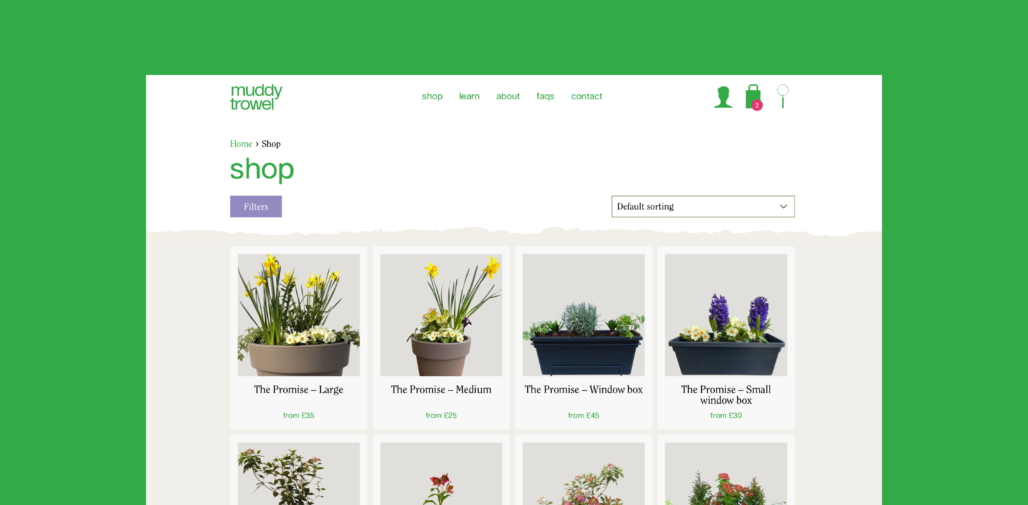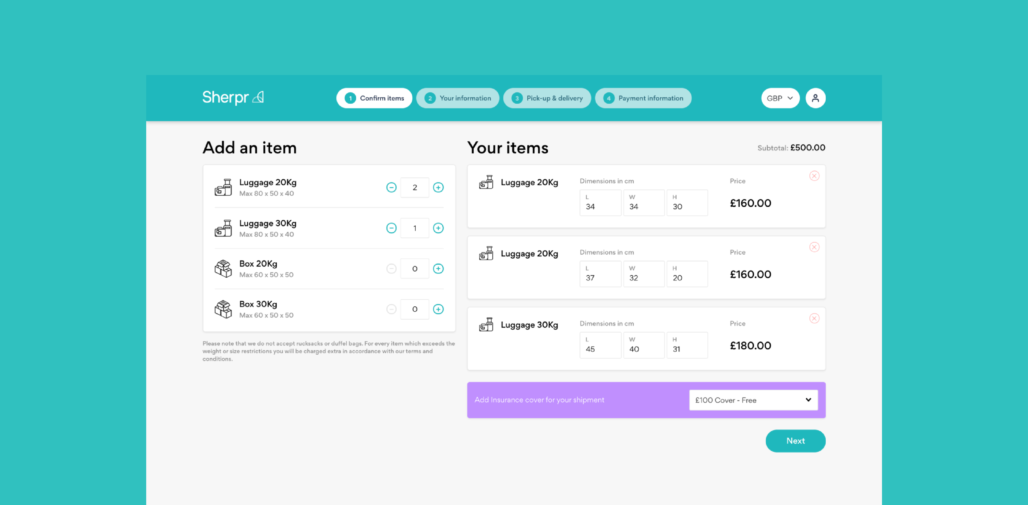When beginning to consider how to build your digital platform or website there are two routes available to you; either build using a generic, off-the-shelf platform, or if your needs are more complex you may choose to build some custom software.
There’s no definitive right answer to this question but this article offers some of the top things to consider when making the decision. If you’d like to speak to a technical expert about your options, we’d be happy to help.
What do we mean by custom software vs off-the-shelf?
By generic, we mean a solution which utilises an off-the-shelf technology solution which is then configured and adapted for your needs. These kinds of solutions are provided by third parties who maintain and update a core set of functionalities independently of your business. A popular example of this would be WooCommerce, an eCommerce plugin for WordPress which provides all the features you need to sell products online such as a basket, checkout, payment gateway, etc. Building using these technologies has some major advantages:
- Speed: because you don’t need to build every aspect of the platform, you can be up and running much faster than building a custom solution.
- Cost: because you’re not building all those features yourself, you save cash or put it into more value-add features.
- Simplicity: With a lot of the grunt work taken care of, the build is usually much simpler to approach too.
We’ve helped many clients build their platform using off-the-shelf solutions and for some businesses it genuinely is the better option. Particularly if you are trying to:
- Move quickly: if speed to market is a priority, an off-the-shelf system is going to be a strong consideration for you
- Prove and validate an idea: if you’re early in your business journey, it might not make sense to invest heavily in technology until you’ve found your product/market fit in case you need to change direction later.
- Have a business model which fits well into an existing third-party solution: If your business model fits well into an existing solution, then it can make a lot of sense to develop using an existing third-party solution.
A good example of a business which operates using this model is our client Muddy Trowel. They are a gardening delivery business, which operates using WordPress and WooCommerce. As a brand-new startup, saving cost and getting to market quickly were their top priority. We were able to offer the functionality and design required by Muddy Trowel perfectly well using the flexibility and features provided by WordPress, WooCommerce and the ecosystem of integrations available. This solution was also a much cheaper option for them than a custom web-app, and was able to be launched relatively quickly compared to an option coded completely from scratch.

There are some downsides to generic software though:
- A game of compromises: As your business grows, requirements become more specific and your needs more complex. Off-the-shelf software is the result of what most people find useful, not what you find useful. As you grow the gap between what you need and what off-the-shelf can provide will naturally widen and compromises have to be made which might hold back further growth.
- Lack of differentiation: custom-coded software should be truly transformative for your business, because it’s tailored exactly to your needs. If you’re using the same tech as everyone else, how will you differentiate yourself and the experience you offer?
Custom software offers you a much greater wealth of flexibility, vs an off-the-shelf solution. You’ll have full control over the look and feel as well as the more complex back and front-end functionality. Whilst this may be more expensive in the short term, the benefits in terms of UX and improved site functionality can reap huge benefits very quickly. We’ve personally seen clients have a huge uplift in conversions and sales in the weeks and months after launching a custom platform, quickly regaining back the investment they made in a custom solution. This is definitely the option for businesses who have more complicated booking or purchasing processes. Some key benefits include:
- Control: when designing and building custom software, you can tailor it specifically to your business requirements – making it a powerful and transformational tool for your business growth. No more compromises, meaning you can create the website in the way the customer wants with all the features you need.
- Innovation: you can truly differentiate your service from competitors by finding and delivering better experiences for customers, without being constrained by third-party technology.
- Scalability: off-the-shelf solutions have a natural expiry date as the business grows due to a limited feature offering. Custom solutions mean you can engineer for the long-term.
- Value: building proprietary technology for your business also means more value creation for investors, as well as higher barrier to entry for potential competitors too.
Whichever you choose, make sure the supporting tech is suitable to maintain performance as you scale and that you’ve given good design consideration to your UX to maximise conversions.
How do you know when it’s time to upgrade to custom software from an off-the-shelf solution?
A problem we see all the time is businesses coming to us with off-the-shelf platforms which are functionally on their knees and no longer able to service the business’ needs. As businesses scale, their products evolve and their digital requirements can get more complex. Often this means their websites need to be able to provide more complex functionality, withstand higher levels of traffic and provide greater security. Unfortunately, non-custom options can’t always keep up with this and can leave businesses in the lurch with poorly functioning capabilities leaving their sales straggling.
Usually businesses will try to adapt their off-the-shelf solution to keep up with the business’ requirements. The end result is usually a website which has been added to over time (we like to call these “plugin monsters”… culprits – you know who you are!) these solutions are impossible to function at scale and simply don’t cater to the business’ growing needs.
Symptoms of this are;
- Excessive use of plugins,
- Frequent website crashes or frustrating bugs,
- A feeling that your website is very fragile – one change might bring the whole thing crashing down,
- A slow website (high user drop-off rates, poor SEO ranking, poor ROAS),
- Poor conversion rates,
- Conversion bottle-necks,
- Tasks which could be automated being done manually.
Our clients, Sherpr were a great example of this. In brief, when they came to us they were using an off-the-shelf solution to run their luggage shipping business. Their website was clunky, and the complex booking funnel had been reverse engineered to fit into the Magento eCommerce solution. Their business requirements had evolved to a point where their off-the-shelf solution could no longer support their growing list of needs. Back office processes were manual, with shipping labels, customs forms and insurance add-ons still needed to be done by staff manually. Their booking functionality was also clunky and unable to cater for the options they wanted to offer customers, meaning they had high drop-off rates at the point of booking.

The custom platform we built did all of the previously manual tasks for them automatically, as well as providing a smooth user-lead booking experience. Following the rebuild of their platform, Sherpr saw an immediate uplift in customers and conversions.
So, which should you choose?
There is no one size fits all answer to the question of whether your business needs a custom or off-the-shelf eCommerce solution, but here are a few guidelines to go by:
If your business is a straightforward online shop with simple product options and a straightforward shipping process, an off-the-shelf solution will probably do you just fine.
If your business has more complex requirements and you’re finding that your current online platform is failing you, you may benefit from custom software over an off-the-shelf option. This will mostly be applicable if your platform has a booking function, complex product offerings with lots of options available or if you have complex back end processes in place with multiple API integrations.
Whichever you choose, make sure the supporting tech is suitable to maintain performance as you scale and that you’ve given good design consideration to your UX to maximise conversions. We’d strongly recommend pre and post-launch user testing for both options, launching to MVP stage initially and then building out features as you go to prevent wasted time and resources. You can read more on the MVP method of development here.
If you’d like to find out more about how we build custom web apps, please do get in touch!
